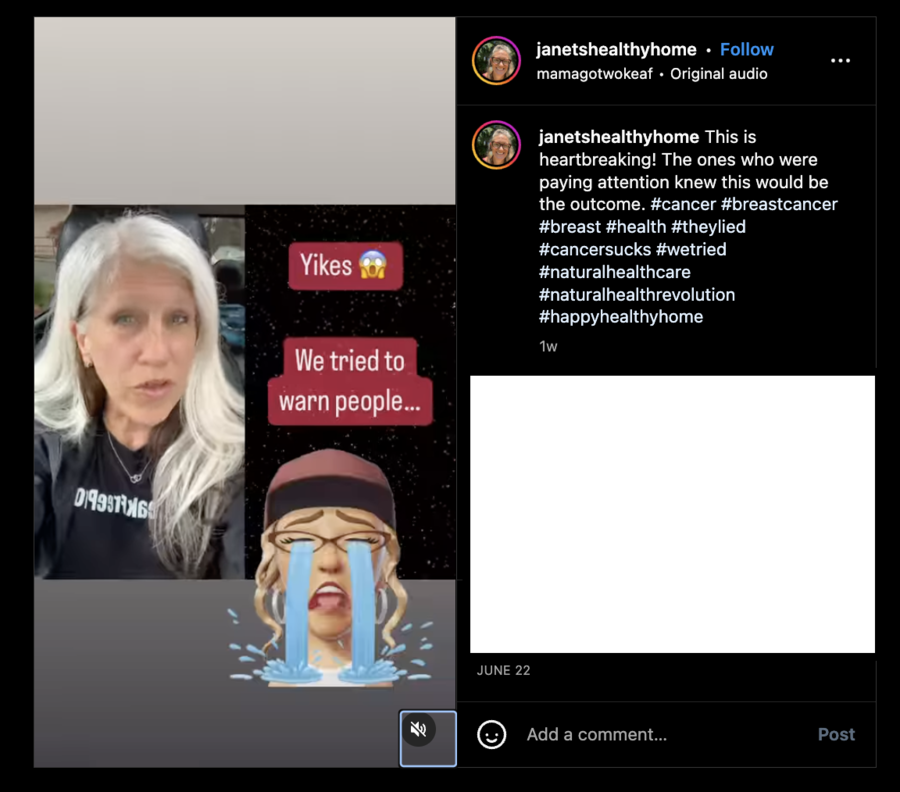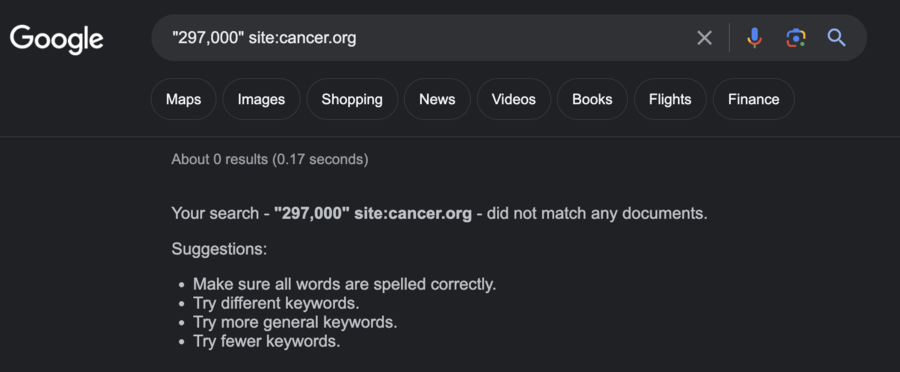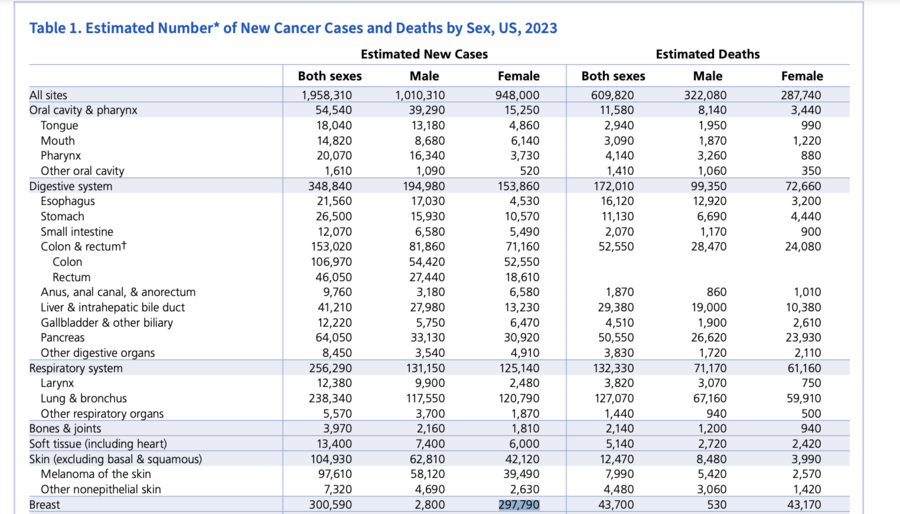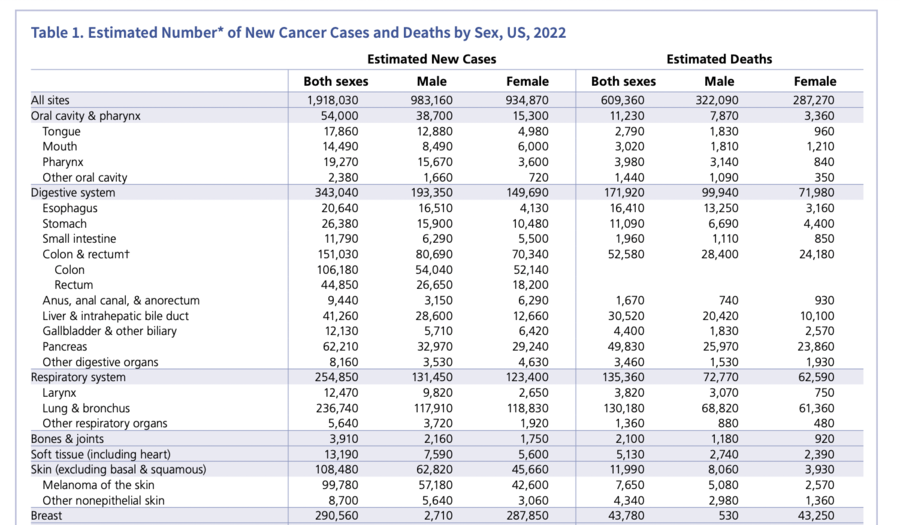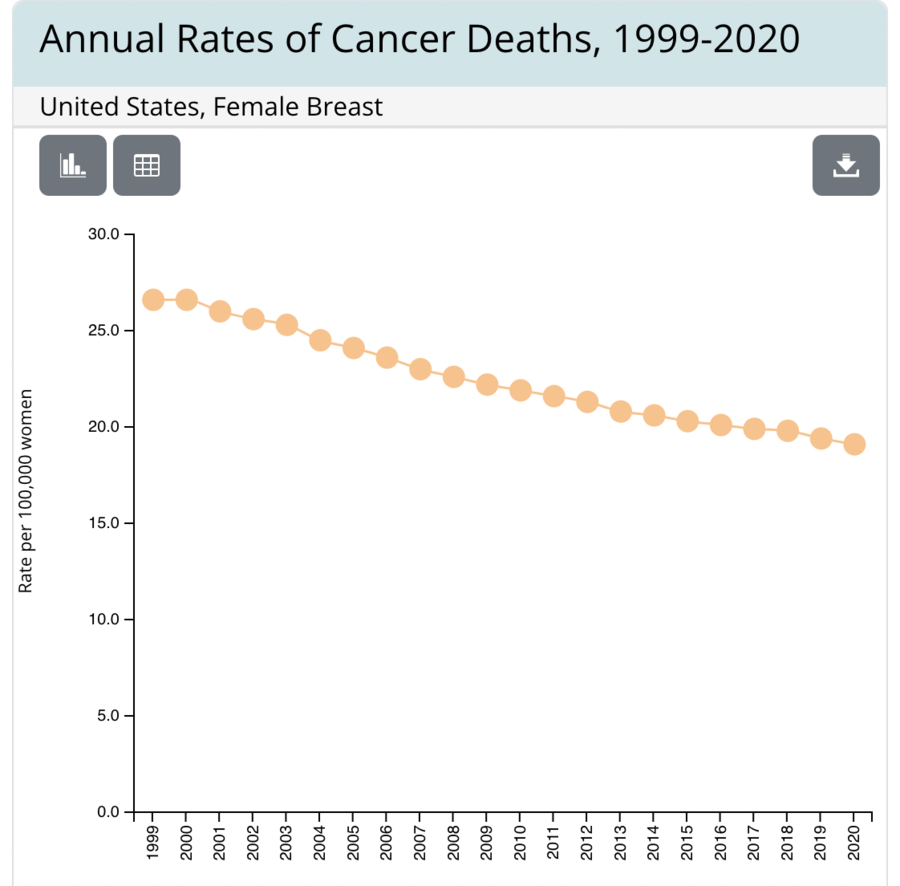
Did COVID-19 vaccines cause a massive mortality spike in breast cancer female patients below the age of 45, reaching 297,000 deaths during the first six months of 2023? No, that's not true: Posts on social media distorted a report published by the American Cancer Society (cancer.org), conflating the number of projected new cases with expected mortality.
The story appeared in a post published on Instagram on June 22, 2023. The caption said:
This is heartbreaking! The ones who were paying attention knew this would be the outcome. #cancer #breastcancer #breast #health #theylied #cancersucks #wetried #naturalhealthcare #naturalhealthrevolution #happyhealthyhome
The woman in the attached video continued:
Have you visited cancer.org lately, taken a look at their stats? How about 45 and under women breast cancer deaths? 2019, 20, 21, we're looking at 26,000-ish deaths, 2022 -- 47,000 deaths. 2023 -- 297,000 deaths from breast cancer under 45 years old. Don't worry: [it] has nothing at all to do with the shot.
Here is what the post looked like on Instagram at the time of writing:
(Source: Instagram screenshot taken on Mon Jul 3 15:28:56 2023 UTC)
However, the website cited as a source in the video -- cancer.org -- did not contain mentions of the specific number the woman in the video referred to:
(Source: screenshot taken on Mon Jul 3 15:46:02 2023 UTC)
A further inquiry led to a different figure found on Cancer.org: 297,790 (when rounded, it becomes 298,000.) However, the figure did not represent what the video claimed it did.
This figure came from the January 2023 reports detailing epidemiological trends.
Contrary to the clip on Instagram, the document showed the figure in question only in sections of the report discussing the projected number of new breast cancer cases among female patients of all age groups, not the number of deaths among women below the age of 45. For example, this table from the report displays the estimated new cases by sex in the U.S.:
(Source: Cancer.org screenshot taken on Mon Jul 3 15:55:00 2023 UTC)
The same table showed that the estimated number of deaths from breast cancer among women in 2023 was significantly lower than the number of projected new cases: 43,170.
The report shared the context: While "invasive female breast cancer incidence rates have been increasing by about 0.5% per year since the mid-2000s" (in part, because of excess body weight and older age at the first birth), "the breast cancer death rate among females peaked in 1989 and has since declined by 43% as of 2020, mainly because of earlier detection through screening mammography, as well as increased breast cancer awareness and improved treatment."
In 2022, a similar cancer.org report projected about 10,000 fewer new cases but a slightly higher number of deaths:
(Source: Cancer.org screenshot taken on Mon Jul 3 16:37:39 2023 UTC)
Besides better screening, an increase in the expected number of new cases may reflect the overall population growth.
Lead Stories reached out to cancer.org for further details. When we receive a response, this story will be updated as appropriate.
Yet, the CDC chart below shows that the rate, which shows the prevalence of the deceases among the specific population, tends to decline:
(Source: CDC screenshot taken on Mon Jul 3 16:44:24 2023 UTC)
The National Cancer Institute and Memorial Sloan Kettering Cancer Center have explicitly refuted the alleged connection between COVID-19 vaccines and increased risks of cancer.
Additionally, Lead Stories previously wrote that the claim about the effects of cancer-causing "green monkey DNA" in mRNA COVID-19 vaccines is not supported by known facts.
The account that posted the video that is the focus of this fact check promotes essential oils and website-building services that promise to attract more customers to their clients' businesses.
The claim about the purported spike in breast cancer deaths among young women due to COVID-19 vaccines appeared on other resources, too. For example, one of those articles credited "Dr. Betsy Eads" for such discovery.
Eads has a known history of making false claims about COVID-19 vaccines, but there is no evidence that she published any peer-reviewed research on the matter.
Other Lead Stories fact checks about COVID-19 can be found here.

